IPDC Champion Statements at UN Water 2023
The formal high-level Launch of the International Panel on Deltas and Coastal Areas took place at the UN Water Conference in New York on the 23rd of March 2023, marking the formal start of the IPDC programme. During the event, ministers and high-level representatives from 12 countries and international financial institutions expressed their support for the IPDC and stressed the need to take climate adaptation action. The event was hosted and moderated by Annamieke Nijhof, Director General of Deltares and opened by Mark Harbers, Minister of Infrastructure and Water Management.
Key messages from Minister Harbers’ speech:
- Policy, research, and implementation go hand in hand, and all three domains are anchored in the IPDC, with a focus on the medium term (between 5 and 30 years from now).
- The IPDC's work is demand-driven, with participating countries able to request tailor-made advice.
- The IPDC's work is founded on three basic principles: more knowledge, a tailored and structured approach, and feasible plans.
- The IPDC will present its first results at the IPDC Conference in the Netherlands in March next year and will remain open to other countries to join.
Statement of Champions
The speakers (countries/financial institutions) see IPDC as a platform for sharing knowledge, building partnerships, accessing existing resources, and advocating for specific challenges in coastal areas. They see IPDC as an opportunity to speed up climate adaptation, get policy guidelines, request for assistance and support, and accelerate climate adaptation actions.
Speakers at the event:
Bangladesh - Dr. Abdul Momen, Minister of Foreign Affairs
- Bangladesh hopes the IPDC will be able to connect into the existing resources (Bangladesh Delta Plan 2100, Delta Coalition, Mujib Climate Prosperity Plan), to facilitate peer-to-peer exchange among of Champion countries.
- They see IPDC as an advocacy forum for internationally highlighting the specific challenges of deltas and coastal areas.
- Minister Momen specifically mentioned the work with Global Center on Adaptation on the Global Hub on Locally Led Adaptation in Dhaka.
Aruba - Mr. Ursell M. Arends, Minister for Transport, Integrity, Nature and Senior Affairs
- Aruba and its National Climate Resilience Council (NCRC established in November 2022 to reduce the vulnerability and enhance the resilience of Aruba by 2030) will benefit from IPDC with access to existing knowledge sharing, network and scientific guidelines.
- Aruba needs risk assessment of the infrastructure, economy and nature of the island; disaster preparedness plans and livelihood diversification strategies.
Singapore - Ms. Grace Fu, Minister of Sustainability and the Environment
- Investing in climate science research to develop practical and effective solutions for tropical islands, with a focus on deepening research capabilities and improving forecasting capabilities.
- Developing nature-based solutions that are flexible, adaptive, and effective in coastal protection.
- Emphasizing the importance of technology and innovation in adaptation, and promoting cost-effective and innovative solutions for resilience. Additionally, the IPDC is highlighted as a way to share knowledge and collaborate on climate science research.
St Maarten - Mr. Egbert J. Doran, Minister of Public Housing, Spatial Planning, Environment and Infrastructure
- St Maarten faces challenges with limited human, institutional, and financial capacities which make it difficult to secure funding for climate adaptation efforts. They see the IPDC as an asset to support their local adaptation agenda and look forward for tailor-made financial instruments and investments, locally relevant assessments, and guidelines about expected impacts and coastal risks.
South Africa - Mr. Senzo Mchunu, Minister of Water and Sanitation
- South Africa's immediate areas of interest for capacity building and their national adaptation plan include improving water security through water and wastewater management, adapting to extreme events, improving infrastructure resilience, and restoring natural water resources. They also see the IPDC as a platform to share knowledge and learn from experiences.
Colombia - Ms. Susana Muhamad, Deputy Minister of the Environment
- They see IPDC as an opportunity to speed up climate adaptation, especially to get knowledge and capacity to formulate and implement climate adaptation projects in their delta areas.
Vietnam - Mr. Le Cong Thanh, Deputy Minister of Natural Resources and Environment
- IPDC is an asset to share policy guidelines, build partnerships and request for assistance and support.
Egypt - Dr. Hani Sewilam, Minister of Water Resources and Irrigation
- Emphasizing that IPDC is a platform to share knowledge, accelerate climate adaptation actions and build international cooperations (example from Nile Delta – a locally developed, nature-based solution to reduce the vulnerability of coastal flooding damage).
Bonaire - Mr. Edison Rijna, Lieutenant Governor at Municipality Bonaire
- Focus on water management, building partnerships and sharing knowledge.
Curaçao - Mr. Albert Martis, Director of Meteorological Department Curacao
- Curacao is working with all stakeholders and has a strong governmental structure and vision to address capacity problems and tackle climate change through initiatives focused on water management, nutrition security, coastal zone management, and waste water management.
Asian Development Bank - Mr. Woochong Um, General Managing Director
- Action Plan for Healthy Oceans and Sustainable Blue Economies (launched in 2019) to provide finance and technical assistance for ocean health and marine economic projects, with a total of $5B USD between 2019-2024.
- In 2021 the ADB elevated the ambition to deliver $100B USD climate finance between 2019-2030, with $34B USD earmarked for scaling up transformative adaptation solutions and innovative methodologies to increase the resilience.
- The Asian Pacific Water Resilience, launched at COP27, aims to mainstream water security and resilience by mobilizing at least $200M USD in grant and technical assistance between 2021-2026, expected to catalyze $10B USD in climate adaptation finance till 2030, while providing rapid capacity building and knowledge sharing for resilient solutions.
Green Climate Fund - Ms. Dr. Oyun Sanjaasuren, Director of External Affairs
- 3B USD investment into water related projects since 2015.


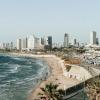



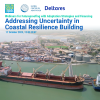

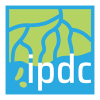

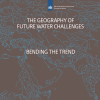
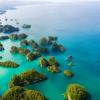
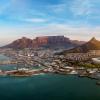
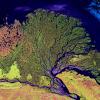

Trending Discussions
From around the site...
“Absolutely interested! I'll connect via email to discuss reviewing and enhancing the Economic Analysis of Climate...”
Adaptation-related events at COP28 (all available to follow/stream online)
“Please check out these adaptation-related events taking place at COP28 - all available online (some in person too if...”
Shining a light for biodiversity – four perspectives to the life that sustains us. Four hybrid sessions.
“30 November to 19 December 2023 - Four Sessions Introduction The SDC Cluster Green is happy to invite you to the...”